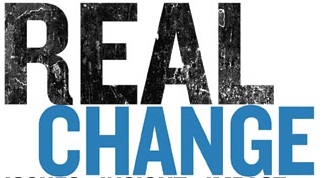I recall hearing from a wise mentor once that, the definition of insanity was… “repeatedly doing the same thing the same way, whilst also expecting a different outcome.” Duh! For me, that was also a good definition of stuborness or willfulness. ROTF
C.onscious approach to daily living
H.opeful that the future is bright
A.cceptance of transitory nature of life
N.on-attachment and non-addiction leads to serenity
G.iving control over to a higher power.
E.xpecting only the best.
1. One of the most useful personal management skills today is that of managing personal change. In times of turbulence, many people are feeling scared and frustrated about their lives for a number of reasons.
2. We live in turbulent times no doubt, which makes managing change an important skill in today’s age. It takes knowledge and Work to be able to adapt to changes in life so you can stop worrying and start living more of your life.
3. Virginia Satir, a pioneer of family therapy, developed a Model of how individuals experience Change. The Satir Change Model says that as we cope with unexpected or significant Change, we predictably move through four stages: Late Status Quo, Chaos, Practice and Integration, and New Status Quo.
4. A lot of people don’t have goals other than working, errands, household chores and relaxing with family and friends. Of course there is nothing wrong with doing these things. If you are perfectly content with the structure and current direction of your Life, then don’t Change a thing.
5. It’s not enough that we have to deal with the normal Personal changes that we all go through in life, but these days we also have broader issues to contend with such as the global economy, the domestic economy (job loss, company closures), the environment, technology, and changing cultural values.


 insidious plan in our lives. We cannot quiet in His love if focused on these demons. But we must. It is a non-negotiable daily part of our joy in Him. These demons will flee as we quiet in His love!
insidious plan in our lives. We cannot quiet in His love if focused on these demons. But we must. It is a non-negotiable daily part of our joy in Him. These demons will flee as we quiet in His love! commandments and teaches others to do the same — will be called least in the kingdom of Heaven.”
commandments and teaches others to do the same — will be called least in the kingdom of Heaven.”





 people prefer the ‘good old days’ when they were more compliant and self-sacrificing. Unpleasant emotions, once medicated with addictive substances or processes, may be experienced as threats to relationships that have adapted over the years to the insanity of addiction. Some people in recovery experience hostility when they start telling the truth in social systems which have been committed to silence for generations. Other people experience shame and rejection when people are skeptical about or merely uncomfortable with the changes that recovery brings.
people prefer the ‘good old days’ when they were more compliant and self-sacrificing. Unpleasant emotions, once medicated with addictive substances or processes, may be experienced as threats to relationships that have adapted over the years to the insanity of addiction. Some people in recovery experience hostility when they start telling the truth in social systems which have been committed to silence for generations. Other people experience shame and rejection when people are skeptical about or merely uncomfortable with the changes that recovery brings.